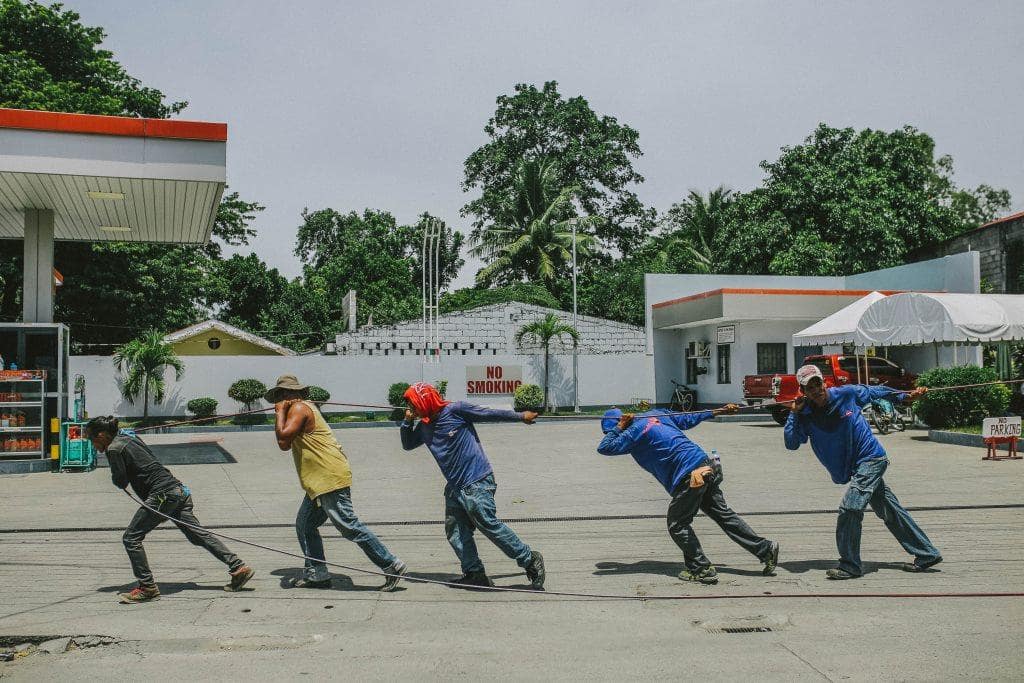Workers Participation in Management
Meaning of Worker:
Worker can be defined as a person who does a specified type of work or a particular kind of work or who works in a specified way.
The Section 2 (x) of the prevailing Labor Act, 2017 (2074) of Nepal has defined the term “Labor” means a worker or employee or a person employed with any job title who performs a physical or intellectual work for the employer.
Meaning of Workers’ Participation in Management:
“Coming together is a beginning, Keeping together is a progress, and Working together is a success”.
Workers participation cannot be determined by a standard formula. The position will vary greatly according to the political, social and economic systems prevailing in the country including the political and economic power and the relative strength of organized labor and management.
The concept of workers participation represents a popular theme in the analysis of the world of work among scholars in the fields of industrial society, industrial relations, as well as management.
It refers to any arrangement which is designed to involve lower level workers in the important decision making within the workplace/organization. It gives a sense of belongingness among the workers towards the organization. Literally, it means a participative arrangement of workers and management in running a firm or any organization. Workers participation in management is a theme commonly discussed within the realms of industrial relations.
Workers participation in management means giving scope for workers to influence the managerial decision making process at different levels by various forms in the organization. The main forms of workers’ participation can be: information sharing, joint consultation, suggestion scheme, and other such methods/ways etc. This allows for workers’ involvement in the initiation, formulation, and implementation of decisions within the organization. It consists basically in creating an opportunity under suitable conditions for people to influence decisions which affect them. It is a special case of delegation in which the subordinate gain greater control, greater freedom of choice with respect to bridging the communication gap between the management and the workers. This helps to create a sense of belongingness among the workers as well as a conducive environment in which both the workers would voluntarily contribute to healthy industrial relations.
According to Keith Davis,” participation refers to the mental and emotional involvement of a person in a group situation which encourages him to contribute to group goals and share the responsibility of achievement.
According to Walpole,” participation in management gives the worker a sense of importance, pride and accomplishment, it gives him the freedom of an opportunity for self-expression, a feeling of belongingness with the place of work and a sense of workmanship and creativity.
According to ILO, “workers participation may broadly be taken to cover all terms of association of workers and their representatives with the decision making process, ranging from exchange of information, consultations, decisions, and negotiations to more institutionalized forms such as the presence of workers’ member on management or supervisory boards or even management by workers themselves (as practiced in Yugoslavia).”
The socio economic factors influencing workers’ participation vary from time to time. Thus, any definition of workers’ participation and role of trade unions has necessarily to be provisional, because the socio-economic framework within which it operates is itself liable for a change. The scope and range of functions to be covered by workers’ participation would vary widely, in accordance with the relative importance priorities.
International Institute of Labor Studies says” workers participation in management is the participation resulting from the practices which increase the scope for employees/ workers share of influence in decision making at different tiers of organizational hierarchy with related assumption of responsibility.
Objectives of Workers Participation in Management:
The objectives of workers participation in management are different in various countries, state, cities, regions, and organizations. When the workers / employees are encouraged to participate, it is vital to take in to account the areas in which, they would participate. It depends upon the number of factors such as: quality of human resources, level of technology, materials, equipment and tools, level of competition, socio-economic status, political philosophy, attitude of workforce, industrial and labor relations and overall working environmental conditions.
The main objectives of workers participation in management can be pointed out as under:
- To prevent workers from being exploited by the superiors within the organization,
- To have democracy in an organization,
- To lead to an effective growth and development of the workforce,
- To resolve dissimilarities between management and the workforce,
- To develop a sense of participation among workforce within the organization,
- To encourage the workers to express their ideas and suggestions,
- To make improvements in the overall working environmental conditions,
- To promote better understanding among management and workforce in terms of various issues of the organization,
- To generate awareness among the workers/employees that they have an important role to play in the functioning of the organization, and
- To make provision of opportunities among the workers/employees for self-expression leading to industrial peace, good relations and increased cooperation.
Importance of Workers Participation in Management:
The main importance or significance of workers participation in management can be explained as:
- Higher productivity,
- Greater commitment,
- Reduced industrial unrest, and tensions,
- Improved decisions,
- Human resource development, and
- Reduced resistance to change.
Forms of Workers Participation in Management:
The different forms of workers participation in management can be explained as:
- Collective bargaining,
- Works council,
- Joint management councils and committees,
- Board representation, and
- Worker’s ownership of organization.
Levels of Workers Participation in Management:
Workers’ participation is possible at all levels of management, the only difference is that of degree and nature of application. For instance, it may be vigorous at lower level and less at top level. Broadly speaking, there can be five levels of participation such as:
- Information participation,
- Consultative participation,
- Associative participation,
- Administrative participation, and
- Decisive participation.
Nepalese Context Regarding Workers Participation in Management:
The concept of workers participation in management has been widely applied in many firms, companies and industries of Nepal in order to achieve the goals such as;
- understanding management and minimizing conflict between workers and management,
- creating among the workers a sense of belongingness towards the organization they work in,
- keeping a check/control on managements’ mal practices,
- improving production, productivity and profitability so that they can expect to get an increasing share in the fruits of industry,
Similarly, for improving the quality of working life through improved satisfaction of the social and psychological needs of the workers and better social relations at the work place as well as through greater control over and understanding of the work that worker has to do. In this note, the concept of workers participation in management has been applied in diversified ways in Nepal.
Constitutional Provision:
The prevailing Constitution of Nepal (2015) has incorporated the employment and labor related subject matter in the topic of fundamental rights. The provision of Article 33 and Article 34 are important to understand the main constitutional provisions relating to employment and labor.
Article -33 Right to employment:
- Every citizen shall have the right to employment. The terms and conditions of employment, and unemployment benefit shall be as provided for in the Federal law.
- Every citizen shall have the right to choose employment.
Article -34 Right regarding labor:
- Every laborer shall have the right to fair labor practice. For the purposes of this Article, “laborers” means a laborer or worker who does physical or mental work for an employer in consideration for remuneration.
- Every laborer shall have the right to appropriate remuneration, facilities and contributory social security.
- Every laborer shall have the right to form and join trade unions and to engage in collective bargaining in accordance with law.
Thus, all these are the major provisions included in the prevailing Constitution of Nepal (2015) regarding the different aspects of the workers and laborers. Similarly, the different provisions of the prevailing Labor Act, 2074 of Nepal is also the milestone for the proper application of the concept of workers participation in management.
Conclusion:
Worker’s participation in management specifically in decision making refers to the participation of non-managerial workers in the tasks and activities of the organization. It is comprehensively understood that when the workers will be satisfied with their jobs, they will render a significant contribution in the implementation of job duties. Therefore, in order to promote job satisfaction, reduce industrial tensions, promote better quality of work life, enhance productivity of the workers in organization we have to give an appropriate attention towards workers participation in management. It also helps to balance the power, authority, resource and opportunity between and among workers and management.
References:
Bourne, N.(1995). Lecture Notes Company Law. London: Cavendish Publishing Limited.
Chatterji, M.(2016). Corporate Social Responsibility. Delhi: Oxford University Press.
Company Act, 2074.
Constitution of Nepal (2015).
Misra, S.N.(2018). Labour and Industrial Law. Allahabad: Central Law Publication.
Misra, S.N.(2018). Labour and Industrial Law. Allahabad: Central Law Publication.
Mukhiya, B.B., (2017). Legal Research Methodology at a Glimpse. Kathmandu: Heidal Press Pvt.Ltd.
Padma, T. & Rao, K.P. (2010). The Principles of Corporate Law-I. Hyderabad: ALT Publications.




